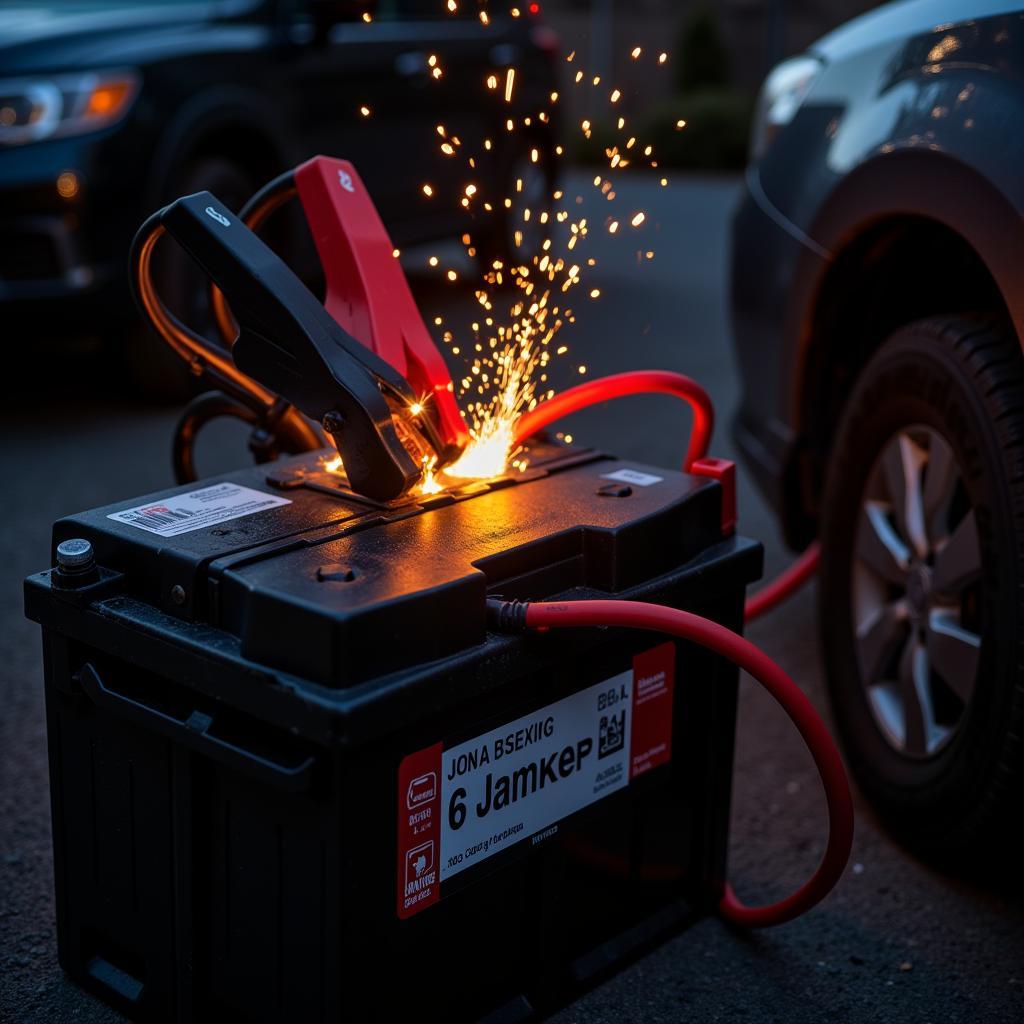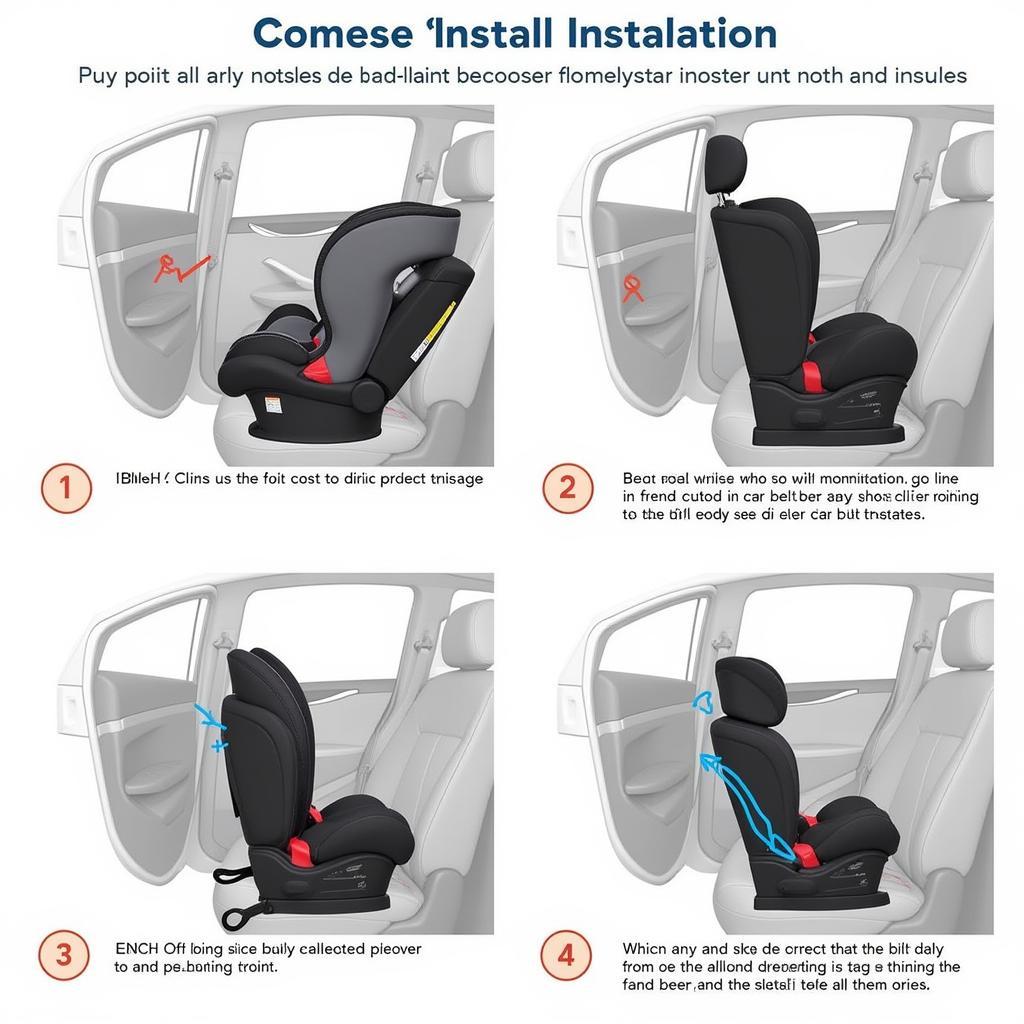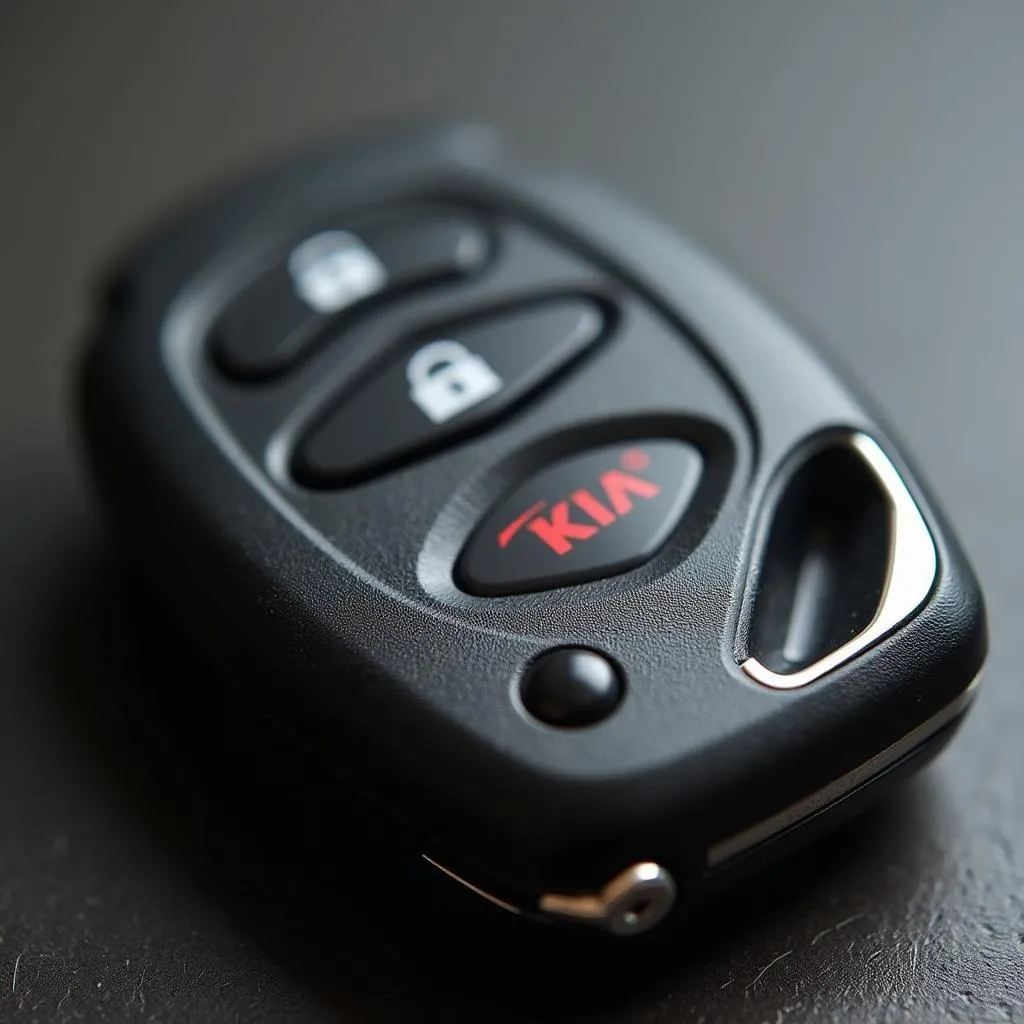A dead car battery is a frustrating experience. Understanding car battery drain reasons can help you avoid this inconvenience and maintain your vehicle’s electrical health. This article delves into the common culprits behind a draining battery, offering solutions and preventative measures.
 Car Battery Draining Fast at Night
Car Battery Draining Fast at Night
Common Car Battery Drain Reasons
Several factors can contribute to your car battery draining. Some are obvious, while others are more insidious. Knowing these car battery drain reasons empowers you to address the issue effectively.
Parasitic Drain: The Silent Thief
A parasitic drain is a constant drain on your car battery even when the ignition is off. This can be caused by faulty wiring, malfunctioning components like interior lights, or aftermarket accessories. Identifying and fixing parasitic drains is crucial for maintaining battery health. One way to check for a parasitic drain is to use a multimeter to measure the current draw with the ignition off. Anything over 50 milliamps could indicate a problem. Remember, even a small drain can eventually kill your battery, especially over time.
Extreme Temperatures: A Double-Edged Sword
Both extreme heat and cold can affect your battery’s performance. Hot weather can accelerate the chemical reactions inside the battery, leading to faster discharge. Cold weather, on the other hand, can thicken the battery’s electrolyte, making it harder for the battery to deliver power. If you live in an area with extreme temperatures, consider investing in a battery designed for those conditions.
Old Age: Inevitable Decline
Like any other component, car batteries have a limited lifespan. Typically, a car battery lasts between three and five years. As the battery ages, its internal components degrade, reducing its ability to hold a charge. If your battery is nearing the end of its expected lifespan, it might be time for a replacement. Don’t wait for it to completely fail, especially if you rely on your vehicle for daily commutes.
Faulty Alternator: The Power Source
The alternator is responsible for recharging the battery while the engine is running. If the alternator is faulty, it won’t charge the battery properly, eventually leading to a dead battery. Signs of a failing alternator include dimming headlights, flickering dashboard lights, and strange noises coming from the engine bay. If you suspect your alternator is failing, have it checked by a qualified mechanic as soon as possible.
Troubleshooting Car Battery Drain
If you’re experiencing car battery drain, start by checking the simple things first. Make sure all lights are turned off, including interior lights, glove compartment lights, and trunk lights. Disconnect any accessories that might be drawing power, such as phone chargers or GPS devices. If you’ve ruled out the obvious culprits, consider checking for a parasitic drain using a multimeter. If you’re not comfortable working on your car’s electrical system, take it to a professional for diagnosis and repair. For more insights, you might find this article on reason for car battery draining fast helpful. In case your car won’t start despite jump-starting, this resource on using jumper cables car wont start can offer some solutions.
Preventing Car Battery Drain
Preventing car battery drain is often easier than dealing with a dead battery. Regular maintenance is key. Have your battery tested regularly, especially if it’s more than three years old. Clean the battery terminals to ensure good connections. Limit short trips, as these don’t give the alternator enough time to recharge the battery fully. Park your car in a garage or shaded area to protect the battery from extreme temperatures. Additionally, you might want to consider reading more about flat battery call out services for quick assistance in case of emergencies. If you notice your battery keeps losing charge, my car battery keeps losing charge provides some helpful tips.
Expert Insight: “One common mistake car owners make is leaving accessories plugged in even when the car is off,” says automotive electrical expert, David Miller. “This can slowly drain the battery over time.”
Expert Insight: “Extreme temperatures can significantly impact battery life,” explains Sarah Chen, a lead automotive engineer. “Make sure to have your battery checked before winter and summer.”
Conclusion
Understanding car battery drain reasons can save you time, money, and frustration. By following the preventative measures outlined above and addressing any issues promptly, you can ensure your car battery remains healthy and reliable. Remember to check out this resource if my car wont start and it’s not the battery. Addressing car battery drain reasons proactively is key to a smooth and hassle-free driving experience.


